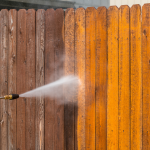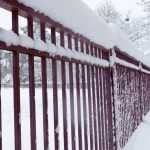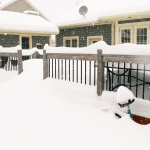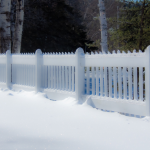As the chill of winter approaches, preparing your home to withstand the harsh elements is crucial, and this includes taking care of your fencing. Properly winterizing your fence not only extends its lifespan but also maintains its aesthetic appeal and functionality. Whether you have a wooden, vinyl, aluminum, or chain link fence, each material requires specific care to combat the cold, ice, and snow. Follow these essential tips to ensure your fence stands strong through the winter months, particularly in climates like Clarksville where temperatures can dip significantly.
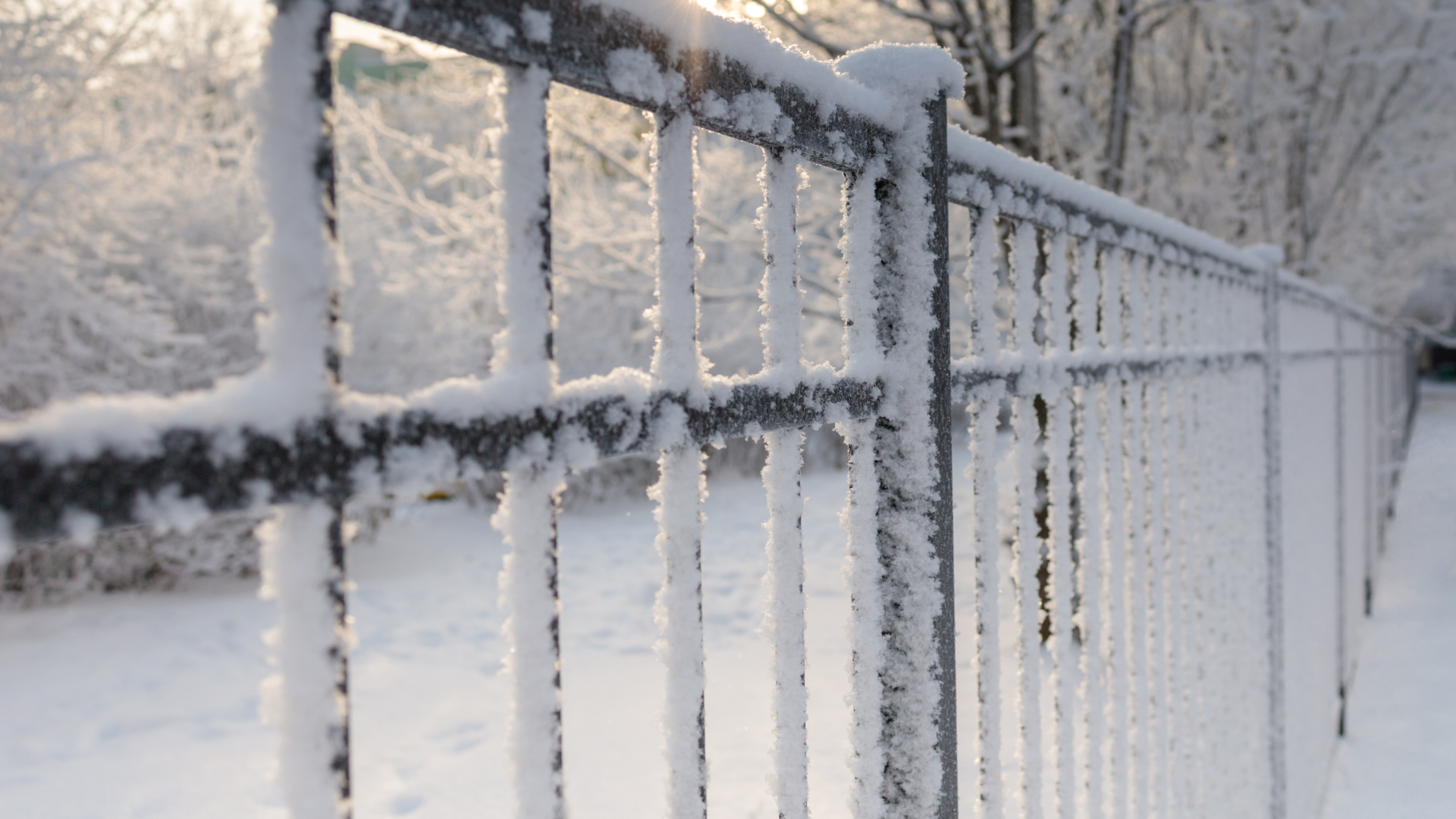
Vinyl Fences: Low Maintenance but Not No Maintenance
Vinyl fencing is prized for its durability and ease of maintenance, yet it still requires specific care during the colder months to maintain its condition and functionality.
- Cleaning: Regular cleaning before the onset of winter is crucial. Use a mild detergent and a soft cloth or brush to remove any dirt, grime, and biological growth such as algae or mildew, which can become more pronounced with winter dampness.
- Check for Cracks and Damage: Cold temperatures can cause vinyl to become brittle and more susceptible to damage. Carefully inspect your fence for any signs of cracking or brittleness. Small cracks can expand if water seeps in and freezes, so address these issues promptly to prevent more significant damage.
- Ensure Proper Drainage: Water accumulation at the base of the fence can lead to problems when temperatures drop below freezing. Make sure that the posts and the areas around them are free of debris that could trap water. If necessary, adjust the landscape to ensure proper drainage away from the fence.
Aluminum Fences: Ensuring Structural Integrity
Aluminum fencing offers excellent resistance to corrosion and rust, making it an ideal choice for winter conditions. However, certain precautions can help maintain its integrity and appearance:
- Inspect for Corrosion: Check for any signs of pitting or corrosion, particularly in areas where the fence may have been scratched or damaged. Clean these areas with a corrosion-inhibitor product or a mild soap solution.
- Secure All Fasteners: Loose fasteners can lead to instability, especially under the weight of accumulated snow or in high winds. Tighten any loose screws or bolts to ensure that your fence remains stable and secure throughout the winter.
- Apply Car Wax: Applying a coat of car wax can provide an additional protective layer against moisture and facilitate easier removal of snow and ice from the fence surface.
Chain Link Fences: Preparing for Temperature Extremes
The robust structure of chain link fences makes them suitable for harsh winter conditions, but they also require specific care to prevent weather-related damage:
- Rust Prevention: If your fence is not vinyl-coated, applying a rust-proofing agent can help prevent the development of rust, which can be accelerated by the increased moisture of winter.
- Tighten and Secure: Ensure that the fence is appropriately tensioned and that all fasteners are tight. Loose sections can sag or bend under heavy snow, potentially leading to permanent damage.
- Remove Vegetation: Plants that climb or grow on the fence can retain moisture and promote rust or freezing damage. Remove these before winter to keep your fence in optimal condition.
Wooden Fences: Protecting Natural Beauty
Wooden fences add warmth and elegance to any property, but they are also most susceptible to winter’s harsh impacts. Here’s how to protect them:
- Inspect and Repair: Start by checking for and repairing any loose or damaged boards, posts, or other hardware. This prevents water from entering and freezing, which can cause further damage.
- Clean and Treat: Remove dirt, debris, and mildew with a power washer at a low setting. Once dry, apply a waterproof sealant to protect the wood from moisture, which can lead to rot and decay.
- Trim Nearby Trees: Prevent damage from fallen branches laden with snow or ice by trimming overhanging limbs before the winter season.
General Winter Care Tips
General maintenance tips apply across all fencing types and are crucial for preparing for winter:
- Clear Snow Promptly: Allowing snow to accumulate can cause structural stress and moisture-related damage. Use a plastic shovel or a broom to gently remove snow from along and on top of your fence.
- Avoid Salt Near Fences: Salt and other chemical de-icers can be corrosive. Avoid using these substances near your fence line. If necessary, opt for less corrosive alternatives like calcium magnesium acetate near the fence area.
- Regular Checks: Winter weather can be unpredictable. Regularly inspect your fence throughout the season for any emerging issues such as leaning posts, loosening hardware, or new damage caused by weather or wildlife.
Consulting a Local Fence Company
For any repairs or professional maintenance, consider consulting a local fence company in Clarksville. They can provide:
- Expert Evaluation: Professionals can assess any vulnerabilities in your fence that you might have missed.
- Quality Repairs: Ensuring that any fixes are done correctly to withstand the remainder of the winter.
- Advice on Upgrades: If your current fence is aging, getting advice on durable, low-maintenance options can be invaluable.
Preparing your fence for winter is an essential step in safeguarding your property’s perimeter and ensuring the longevity of your investment. By following these material-specific maintenance tips, you can rest assured that your fence will not only survive the winter months but continue to enhance the beauty and security of your home for years to come. However, if you’re ready for a new fence, you can request a quote today!



